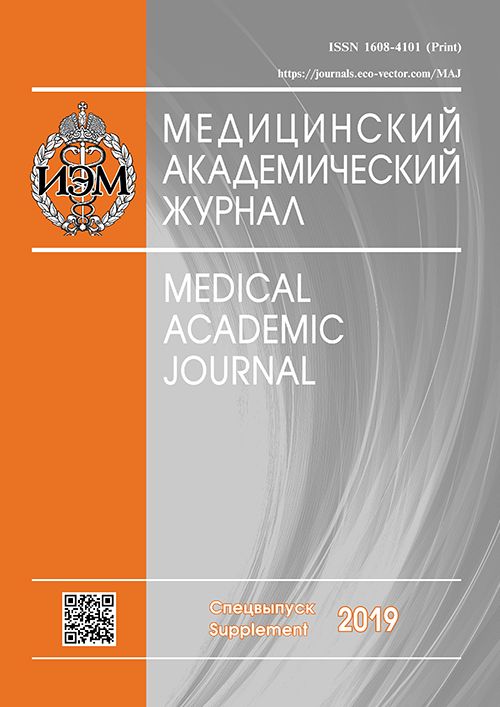ENDURANCE OF RATS WITH DISBIOZ IN EMOTIONAL-PHYSICAL STRESS
- Authors: Safonova AF1, Krylova IB1, Shemerovsky KA1
-
Affiliations:
- Institute of Experimental Medicine, Saint Petersburg
- Issue: Vol 19, No 1S (2019)
- Pages: 100-101
- Section: Articles
- Published: 15.12.2019
- URL: https://journals.eco-vector.com/MAJ/article/view/19346
- ID: 19346
Cite item
Abstract
Stress loads in sport lead to the development of functional disorders of various body systems, including the digestive system. The use of pharmacological preparations for correction of dysbiotic states is very often. The aim of this work was to study the physical endurance of rats with dysbiosis with decreased and increased intestinal circadian rhythm (ICR) under conditions of emotional-physical stress. Dysbiosis with a decreased ICR was caused by the administration of loperamide (LPR) 2 mg/2 ml of physiological saline daily subcutaneously for 6 days. Dysbiosis with increased ICR was caused by the addition of lactitol (LT) 10 g to 200 ml of drinking water daily for 6 days. To model emotional-physical stress, a forced swimming test until exhaustion (drowning) with a load of 7% of the animal’s body weight and a water temperature of 14 °C was used. In the control group, the life span of rats was 136 ± 8 s. LPR increased the physical endurance of rats by 1.94 times compared with control. LT also had a positive effect, increasing the duration of forced swimming in 1.44 times compared with the control. The combined use of LPR and LT did not lead to a change in animal’s endurance. Thus, both types of dysbiosis can be considered as a variant of endogenous stress, which plays the role of adaptogenic factor that increases resistance to a stronger emotional-physical stress, leading to the increase in physical endurance of animals.
Keywords
Full Text
About the authors
A F Safonova
Institute of Experimental Medicine, Saint Petersburg
I B Krylova
Institute of Experimental Medicine, Saint Petersburg
K A Shemerovsky
Institute of Experimental Medicine, Saint Petersburg
References
- Karkishchenko VN, Kapanadze GD, Dengina SE, Stankova NV. Development of a technique of assessment of physical endurance of small laboratory animals for studying the adaptogen activity of some drugs. Biomedicine. 2011;(1):72-74.
- Safonova AF, Ermolenko EI, Kotyleva MP, Karaseva AB. Influence of some probiotics on endurance of rats in experimental dysbiosis. Reviews on Clinical Pharmacology and Drug Therapy. 2015;13(Special issue):149.
- Shemerovsky KA. Pharmacological correction of bradyenteria as endogenous stress. Reviews on Clinical Pharmacology and Drug Therapy. 2015;13(Special issue):198.
- Sudakov SK, Bashkatova VG, Kolpakov AA, Trigub MM. Peripheral administration of loperamide and methylnaloxonum suppresses anxietyin rats. Bull Exp Biol Med. 2010;149(3):244-246.
- Han SH, Park K, Kim EY, Suh HJ. Cactus (Opuntia humifusa) water extract ameliorates loperamide-induced constipation in rats. BMC Complement Altern Med. 2017;17(1):49.
Supplementary files







